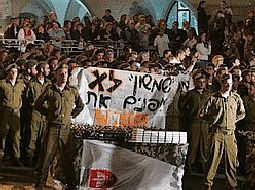Parsha Vayeitzei 5771: Yaakov, Lavan and Practical Applications of Compassion and Cruelty L’Shem Shemayim
In last week’s Parsha Toldos, we learned about Rivka, who rose above an evil environment while internalizing it’s insights and was thus well positioned to urge Yaakov to claim the Bracha, and about Yaakov, the “Ish Tam”. We learn that Yaakov was “totally honest, a man of great integrity” but was also master over the trait of being “tam”, a “‘plain man’, … without trickery. This means that Yaakov did not allow this “Ish Tam” character trait to dominate him. He knew when and where to act otherwise. We knew that from his demand for the birthright from Eisev in exchange for the lentil soup. These traits surely seemed inculcated to Yaakov as a result of Rivka Imeinu’s nurturing. We later learned that Yaakov told Rachel; “‘…that he was her father’s kinsman’, according to the Sages, ‘If he has come to be sly, I am his kinsman in being sly.'” (Rashi on Breish’t Perek 29, posuk 12)
